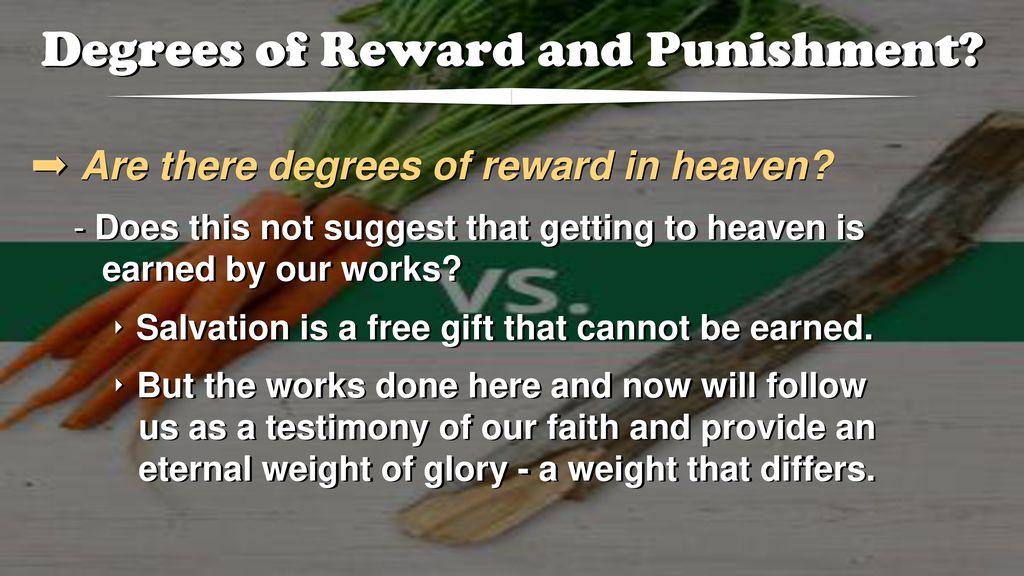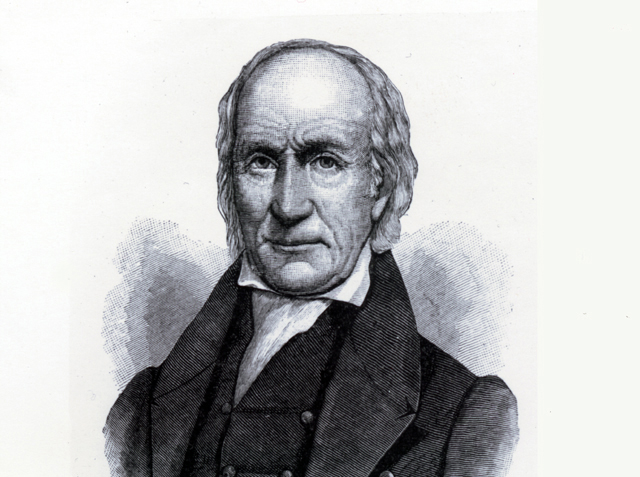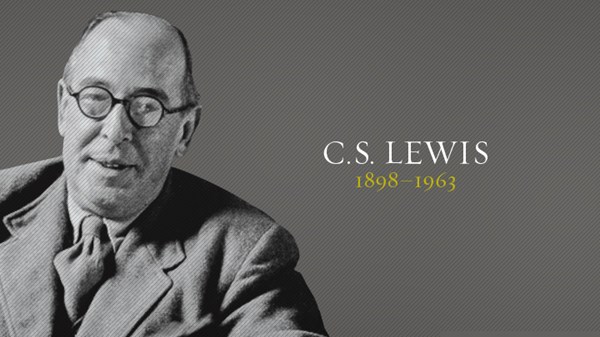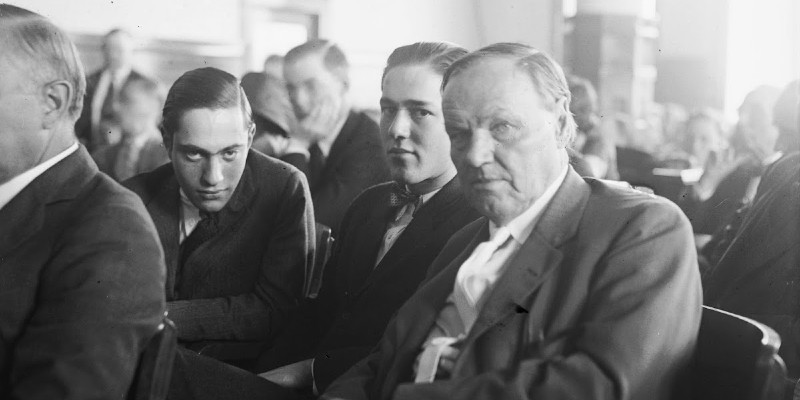"Laying up in store for themselves a good foundation
against the time to come,
that they may lay hold on eternal life."
(I Tim. 6: 19 kjv)
"For we are God’s fellow workers; you are God’s field, you are God’s building. According to the grace of God which was given to me, as a wise master builder I have laid the foundation, and another builds on it. But let each one take heed how he builds on it. For no other foundation can anyone lay than that which is laid, which is Jesus Christ. Now if anyone builds on this foundation with gold, silver, precious stones, wood, hay, straw, each one’s work will become clear; for the Day will declare it, because it will be revealed by fire; and the fire will test each one’s work, of what sort it is. If anyone’s work which he has built on it endures, he will receive a reward. If anyone’s work is burned, he will suffer loss; but he himself will be saved, yet so as through fire." (I Cor. 3: 9-15 nkjv)
In this chapter we continue our analysis of the above text. Here is what we have already observed.
1) The exhortation to be careful about what building materials a Christian or a Christian church uses to build upon the foundation of Christ is primarily addressed to everyone who has made Christ the Lord of his or her life but it is also applicable to those who teach the church (those who are already converts).
2) A Christ foundation is laid in the heart of every sinner who believes in Christ and turns to him.
3) Everyone who has this foundation laid begins building upon that foundation by what he has come to believe and subsequently practices, whether he realizes it or not.
4) There is a day of fire appointed to test, try, and judge what the Christian has built upon that foundation.
5) The outcome of "the day" of fire will be that all who have Christ as the foundation will be saved in spite of building imperfectly.
6) A reward awaits those who have built of proper materials while those who built wrongly will lose some degree of reward.
Further, the time of this trial by the day of fire is unlikely to be a day in the life of a believer, as a day of persecution, but is rather a day that is after death, either immediately, or at the day of judgment (bema) for believers, or perhaps both.
Building Terminology
In our main text, we see building terms and construction jargon used. Paul speaks of himself as being a "wise master builder," and of "laying foundations," and of building structures on top of foundations. We have also cited other passages where building terms are used to describe the conversion and life of believers individually or corporately as a church. I have been in construction as well as in real estate nearly all my life. I have built (being the overseer or what some call the "general contractor," or a "building superintendent") many buildings. I know about foundations and footings, and about "framing" the skeleton structure with framing materials (wood, metal, steel, and stone). Think about it; a building has many parts to it, many members, all which have been fit together (by nails and pegs, etc.) by the builders. As the building is being built, it is said to be "growing." Let us notice some texts that speak of this.
"In whom all the building fitly framed together groweth unto an holy temple in the Lord: In whom ye also are builded together for an habitation of God through the Spirit." (Eph. 2: 21-22 kjv)
Two figures that are used to represent the group known as the "church" (assembly) are houses and physical human bodies. Notice also the words "fitly framed together." In a building construction a builder is simply a person who is assembling the various materials together, and shaping each member of the building. In construction we speak of "framing" carpenters and sub contractors, being the ones who build the skeleton of a building. In framing the temple, it mostly consisted in fitly framing together the quarried and squared stones. So too was the great pyramid building, which was all of "precious stones."
In applying this to the idea of building our doctrinal and theological structure we should make sure that our various views on the many different bible subjects and texts of scripture fit together, that there be no contradictions to the word of God or illogical in it. It is an ugly structure that is a mix of both superior and inferior materials and workmanship. I have seen buildings that were not properly built on the foundation, where the building was not square with the foundation and created an overhang, not being all on the foundation. Further, as Jesus taught, to see a building half built and deserted is also a sight that provokes mocking. If we see something in the structure we are building, metaphorically speaking, that is not of the right material nor fitted in place properly (poor craftsmanship), then we must change that (repentance and correction) aspect of our building.
Notice also in the above text how the building is in progress (linear verbs). Each day we live we are building our lives and our characters. As parents we are also trying to lay a good foundation in the hearts and minds of our children. As Christians, we are not only trying to be good masons, good stone foundation layers, for ourselves, but for others too.
"And He Himself gave some to be apostles, some prophets, some evangelists, and some pastors and teachers, for the equipping of the saints for the work of ministry, for the edifying of the body of Christ, till we all come to the unity of the faith and of the knowledge of the Son of God, to a perfect man, to the measure of the stature of the fullness of Christ; that we should no longer be children, tossed to and fro and carried about with every wind of doctrine, by the trickery of men, in the cunning craftiness of deceitful plotting, but, speaking the truth in love, may grow up in all things into Him who is the head—Christ—from whom the whole body, joined and knit together by what every joint supplies, according to the effective working by which every part does its share, causes growth of the body for the edifying of itself in love." (Eph. 4: 11-16 nkjv)
Many of the same ideas are in these verses as the preceding one. Notice the words "joined and knit together." Further, notice how the building up (edifying) of a physical body, like a physical structure, is connected with be grounded in the truth, which would include all areas of biblical science. A "perfect man," like a perfect building, is a reference to a Christian who is not in error in "doctrine," not tossed about by every wind of doctrine. No one reaches perfection in this life, no, not in his or her understanding of God's revelation. Therefore, no Christian (or saved person) builds a perfect building. When the day comes for each Christian to have his building inspected, no Christian will be found to have made no mistakes in building, either in the material used or craftsmanship. Every Christian has a building that has a mixture of good and bad materials, and of good workmanship and of not so good.
Foundational Truth
So, what are the foundational truths connected with Christ? Christ can only be the foundation if Christ is known. And, how does anyone come to know about Christ and the good news about him and his coming into the world? It is by the word of God, particularly the gospel (written by inspired prophets, apostles, and other chosen messengers). It is the knowledge that Christ is God incarnate, and that he came to live a sinless life, to die as a sacrifice (substitute) for sin and as a martyr for the truth, and that he was raised from the dead on the third day after his crucifixion, and that he ascended into heaven with the promise to return to judge the world and inaugurate a time of peace and joy. (See Rom. 1 ; I Cor. 15: 1-10) It also includes the proclamation that Christ is Lord and Savior, that he is prophet, priest, and king.
After the gospel's essential propositions and message have been heard and believed, the foundation for life and religious beliefs has been established. Now one can build the floor, then the walls, and then the ceilings. After this he can begin to do the finishing work. After becoming a believer, a believer begins to be "discipled," to be taught the scriptures, and to correctly interpret scripture, and in doing so he will be building his spiritual building, building his character and life, etc. He will begin to study all areas of soteriology, theology, eschatology, etc. He will take views on these things.
Further, as regards the doctrinal structures Christians build upon the foundation, we get all the varieties of Christian churches and beliefs. Some build a Baptist structure, some a Methodist, etc. There is also disagreement among Christians about what truth is foundational, and necessary to be saved, and what truth is not foundational, but part of the structure built atop the foundation. Many who believe in the Trinity think that all Unitarians, Arians, Sabellians (Jehovah's Witness, Oneness Pentecostals, etc.) are lost because they do not believe foundational truth, and are not built upon Christ, but upon a false Christ. Some Calvinists think that all or many Arminians are lost, and vise versa. I will not go into that question and I am glad I am not the judge of how much error a professing Christian may have in his belief system and still be saved. Needless to say, Paul does distinguish between foundation truth about Christ versus doctrinal truth built upon that foundation.
Revealed By The Day's Fire?
Somehow fire is associated with "the day." That can hardly describe the day of a believer's death, so my idea that it is fulfilled at death, may not be exactly what Paul seems to have in mind by "the day" that "reveals by fire." Or, could it? Certainly, as many think, the fire is not literal since it is burning up religious beliefs. Thus, if it is a metaphor, it could describe what happens at death. Consider the fact that most theologians believe that "the judgement," in some sense, comes at death ("it is appointed for man to die, but after this the judgment" - Heb. 9: 27). If this judgment occurs immediately upon death, then so too would the burning up of all the false beliefs occur then. I do not think that people go to Heaven with their wrong ideas and must continue to hold those beliefs till the day of judgment. That being said, however, there is a sense in which all inferior construction materials (that are parts of the building we have built) are burned up at "the judgment seat of Christ." So, just what is that?
"For we must all appear before the judgment seat (Greek "bema") of Christ; that every one may receive the things done in his body, according to that he hath done, whether it be good or bad." (II Cor. 5: 10)
Bible teachers are not all agreed as to when this particular judgment takes place. The questions discussed are these
1) when is this judgment? when in relation to other future judgments?
2) do all believers "appear" before the judgment seat at the same time?
3) What is the consequence for the bad doing?
4) What is the reward for doing good?
5) Is this a judgment for only true believers?
It is beyond the scope of this series to answer all these questions. I only cite the passage because it deals with rewards and punishments in the afterlife, or in the eternal state, particularly as it relates to true believers who are building upon the right foundation. It is directly related to our main text in I Cor. 3.
I rather think that again we may have a dual fulfillment. Who can deny that in some sense a believer gets some reward when he dies and enters into heaven? Likewise, the scriptures do speak of a future day or period of time, at the second coming of Christ, and before his Millennial reign, when the saints will be gathered together to receive their individual rewards. How this will be done exactly, and how much time it will take, I can only speculate.
I see the reward for faithful service, for doing well in living and building our Christian lives, in pleasing God, as being the theme of both texts. I also see how judgment of a believer for doing bad and building poorly upon the Christ foundation, is that he "experiences loss." How Christians are living will determine in some way how they live throughout eternity. Thus, the message is simple; build your life around those things that will last forever. So Jesus said:
"Do not labor for the food which perishes, but for the food which endures to everlasting life, which the Son of Man will give you, because God the Father has set His seal on Him.” (John 6: 23 nkjv)
In other words, Christians are to have a "bema seat mindset." We should labor, build, and serve the Lord with a view to being rewarded, either in this life or in the next. Notice these words:
"And he said unto them, Verily I say unto you, There is no man that hath left house, or parents, or brethren, or wife, or children, for the kingdom of God's sake, Who shall not receive manifold more in this present time, and in the world to come life everlasting." (Luke 18: 29-30 kjv)
A similar message is found in these words of the apostle Paul:
"For bodily exercise profits a little, but godliness is profitable for all things, having promise of the life that now is and of that which is to come." (I Tim. 4: 8)
Rewards for labor in the Lord are received in both this life and in the afterlife or in eternity. The greater the labor, and the more correct knowledge, the more the reward.
Is the desire for reward a proper motive for service? Apparently so. Those who run in a race do it for the prize, for the reward, both for this life and for the life to come in eternity. Yes, salvation is not a reward for service, although it is a reward earned by Christ and given to those who believe. But, rewards in addition to salvation are to be sought, as our main text affirms along with many others. Notice also these words of the apostle:
"Do you not know that those who run in a race all run, but one receives the prize? Run in such a way that you may obtain it. And everyone who competes for the prize is temperate in all things. Now they do it to obtain a perishable crown, but we for an imperishable crown. Therefore I run thus: not with uncertainty. Thus I fight: not as one who beats the air. But I discipline my body and bring it into subjection, lest, when I have preached to others, I myself should become disqualified." (I Cor. 9: 24-27 nkjv)
Wrote Calvinist John Gill in his commentary (emphasis mine):
"The apostle accommodates or applies the above account to the Christian's course of life, and exhorts to run in it in like manner as racers do in a race. The "stadium", or "race" plot in the which the believer runs, is this world, or this present life; he is only a runner now and here, for no sooner is the time of his departure come, but his course or race is finished; and, as his forerunner Christ, sits down in full rest from all his labours as at a table, with Abraham, Isaac, and Jacob, and on a throne with Christ...The act of "running" is a motion forward, a following on to know the Lord, a going from strength to strength, from one degree of grace to another, a pressing forward toward the mark for the prize; and requires spiritual strength from Christ, and a daily renewal of it; is to be performed with readiness, swiftness, and cheerfulness, in opposition to a slowness of heart to believe, and a slothfulness and sluggishness in the business and service of Christ."
He writes further:
"...moreover, as they ran in the way that was marked out for them, not turning to the right hand or the left, so should believers run in the way of salvation, which is Christ; in the way of holiness, faith, and truth; and in the path of duty and ordinances, which are all clearly pointed out unto them: once more, as they while running kept their eye upon the mark, so should believers, while running the race set before them, be continually looking to Jesus, the author and finisher of faith: to say no more, as they kept running till they came to the end of their race, so should the saints; there is no time for stopping or looking back; remember Lot's wife. The end of running is to obtain the prize, the incorruptible crown of eternal life; not that this is to be procured in a way of merit by running; for the best services of the saints have no merit in them, they are previously due to God, nor can they be profitable to him; and besides, are done by the assistance of his own grace and strength; nor is there any proportion between the best works of men, and this crown of glory, life, and righteousness; yea, salvation, or eternal life, is expressly denied to be of him that willeth, or of him that runneth, and is always represented as this crown is, to be a free gift: the meaning of the expression is, that believers are to run on in their Christian race, that they may, and when they are come to the end of it they shall, as he that came foremost in the race did, stretch forth their hand, lay hold on, and receive the crown which the righteous Judge will give them; and is the true import of the word made use of here, and the sense the same with ( 1 Timothy 6:12 ) . "Fight the good fight of faith, lay hold on eternal life", and denotes that the persevering saint shall enjoy the crown."
It includes salvation, but it is not limited to that, but includes all future rewards and crowns for service and victories.
Wrote Paul further of this laboring for future reward in the afterlife and in eternity:
"8 Yea doubtless, and I count all things but loss for the excellency of the knowledge of Christ Jesus my Lord: for whom I have suffered the loss of all things, and do count them but dung, that I may win Christ, 9 And be found in him, not having mine own righteousness, which is of the law, but that which is through the faith of Christ, the righteousness which is of God by faith: 10 That I may know him, and the power of his resurrection, and the fellowship of his sufferings, being made conformable unto his death; 11 If by any means I might attain unto the resurrection of the dead. 12 Not as though I had already attained, either were already perfect: but I follow after, if that I may apprehend that for which also I am apprehended of Christ Jesus. 13 Brethren, I count not myself to have apprehended: but this one thing I do, forgetting those things which are behind, and reaching forth unto those things which are before, 14 I press toward the mark for the prize of the high calling of God in Christ Jesus." (Phil. 3: 8-14 kjv)
Again, we should labor for Christ and his kingdom believing that we shall be rewarded with good in this life and in the life to come in eternity. Though some see these things as contradictory, yet the bible writers seem to speak like Arminians at one time and like Calvinists at another time, like they believe in self determinism on the one hand, and of divine determinism on the other hand. They were Compatibilists, though they did not always feel a need to show how they are consistent. Salvation is a prize that is won, but salvation is also by grace. Explaining how both those things can be true, in a kind of synthesis (dialectic) of both, is left up to others or for each believer.
Now notice how the apostle joins in the discussion of this line of inquiry, saying:
"8 Look to yourselves, that [c]we do not lose those things we worked for, but that we may receive a full reward. 9 Whoever [d]transgresses and does not abide in the doctrine of Christ does not have God. He who abides in the doctrine of Christ has both the Father and the Son. 10 If anyone comes to you and does not bring this doctrine, do not receive him into your house nor greet him; 11 for he who greets him shares in his evil deeds." (II John 8-11 nkjv)
Notice how John, like Paul, was concerned about lost labor, or labor without fruit, or success, and urges all true believers to be likewise concerned. Of course, as previously stated, all labor in Christ in soul winning does not always yield converts, yet it is still rewarded for its own sake. So Solomon says "in all labor there is profit," and that is true in laboring in righteousness and doing good. (Prov. 14: 23) Also, Paul says "your labor is not in vain in the Lord." (I Cor. 15: 58)
Notice how the apostle John connects "abiding in the doctrine of Christ" with "reward." So does our main text. We build our doctrinal structures on the foundational gospel truth about Christ. By "the doctrine of Christ," another Genitive, John may mean either "doctrine concerning Christ" or "doctrinal teachings of Christ." I believe the former is right and therefore connects "the doctrine of Christ" with "the foundation" which is Christ, with foundational gospel knowledge. If a person does not abide in that foundational truth, then he does not have, neither did he ever "have God" or salvation in Christ. However, a Christian may abide in the doctrine of Christ, in foundational gospel truth, and yet not in some of the teachings of Christ, like on marriage and divorce, or in the area of eschatology, etc. Many will have such wrong ideas on such teachings burned up like chaff or like houses made of combustible materials.
All recognize that in the passage in I Corinthians 3 (our main text under study) that Paul is using, for an illustration or metaphor, the instance when someone's house burns down and yet 1) the occupant of the house escapes, and 2) some parts of the house are not burned to ashes. Many times one can see the remnants of such a fire, and see a brick fireplace still standing along with the stone foundation. Thus, the point of the apostle is that the day of fire destroyed what could be destroyed, leaving only that which is not combustible. A similar metaphor for the same purpose involves what effects are seen as a result of a great shaking, as in an earthquake, is seen in this text:
"Whose voice then shook the earth: but now he hath promised, saying, Yet once more I shake not the earth only, but also heaven. And this word, Yet once more, signifieth the removing of those things that are shaken, as of things that are made, that those things which cannot be shaken may remain." (Heb. 12: 26-27)
The words "those things which cannot be shaken may remain" corresponds to the words of our main text so that we may similarly say - "those things which cannot be burned up may remain." The burning up of the inferior materials in a believer's character construction and theological building "signifies the removing" of those things that can be burned just as the things removed by shaking "signifies the removing" of chaff and things that cannot be moved by wind. Both metaphors and texts involve the idea of "separation," and is an inherent idea in the word "removing" of something from something. That certainly occurs when a believer in Christ dies. Not only is his spirit separated from his body, but his spirit (or the disembodied person) is separated from errors and character flaws and all moral imperfections, and will not have "spot, or wrinkle, or any such thing; but that it should be holy and without blemish." (Eph. 5: 27), so far as his soul and spirit are concerned (For his body to become perfect and immortal, as well as spiritual, it must experience the resurrection transformation of the righteous).
In some sense, it seems that some shaking and burning up occur at the point of death and prior to the believer entering into heaven's glorious state. Yet, it also seems that it also occurs in some sense at the bema judgment of believers in "the day," that is, in the day when Christ returns to judge the living and the dead. But, how can it be both? I may not be able to fully answer that question, but I cannot deny that it must be fulfilled in some sense at death as well as in the judgment at the second coming. I can think of how it could be both, but whether that is the right answer I cannot say for certain.
I can see the final judgment as ceremonial, a way of giving official awards, rewards, crowns, and other kinds of public recognition for what has already been received in large part, if not in whole.
In the next posting we will finish our look at I Corinthians 3: 9-15 and of rewards in the eternal state. We will then talk about the kind of joy and pleasures in that blessed immortal state. What will life be like then? We have hundreds of questions about such a state. We will try to address some of them and thus finish this series on the Afterlife.




